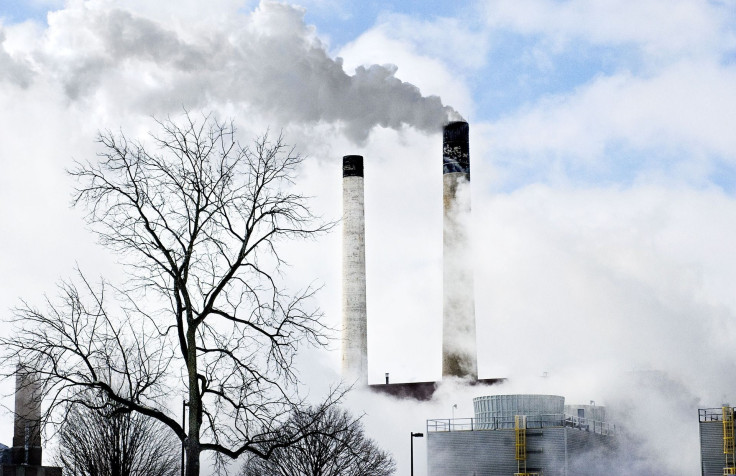100 Fossil Fuel Companies Create 71 Percent Of World’s Greenhouse Gas Emissions

Just 100 companies around the world are responsible for almost three-quarters of total greenhouse gas emissions, according to a new report on the “carbon majors,” the biggest fossil fuel producers.
Data on carbon dioxide and methane emissions usually focus on a country-by-country breakdown as opposed to breaking it down by companies. In the case of state-run production like in China and Russia those can be one and the same, but “these emissions can be traced to a smaller group of commercial decision makers,” the Carbon Majors Report says. The purpose of the report, from the environmental nonprofit group CDP, is “to highlight the role that corporations can play in driving the global energy transition.”
Read: Ice Age Volcanoes Kept Carbon Dioxide High
According to the data, 100 existing fossil fuel companies and producers are creating more than 70 percent of the world’s greenhouse gas emissions since 1988, the year the Intergovernmental Panel on Climate Change was established, signifying an international recognition of a human impact on the climate, known as anthropogenic climate change. Within those 100 companies, not everyone is contributing an equal share; 25 of them are responsible for about half of the total emissions, leaving the remaining 75 companies to the rest of the chunk.
The volume of emissions since 1988 is roughly equal to the volume in the 237 years that preceded it, with the beginning of that time period marking the start of the Industrial Revolution, in which machine manufacturing boomed along with the use of coal and petroleum.
A lot of the carbon majors are run by public investment, such as state-owned producers throughout China and in Saudi Arabia, Iran, India and Mexico. On the other side are private companies like ExxonMobil, Shell, BP, Chevron, Peabody, Total, and BHP Billiton, which are listed as the highest investor-owned emitters.
Why focus on these companies? “Fossil fuels are the largest source of anthropogenic greenhouse gas emissions in the world,” the report says.
CDP called on these carbon majors to work on ways to reduce their emissions, employ methods that capture or offset the carbon dioxide pollution and turn more of their attention to renewable energy.
Read: Will Climate Change Take Away Your Morning Coffee?
“These measures all contribute to a decoupling of growth and emissions, which will maximize the growth achievable by a company under an emissions cap,” the report says.
Some companies have been working on such measures already. According to a report in The Guardian, big companies like Apple, Facebook and Google are transitioning to rely solely on renewable energy and Volvo will soon produce only cars that run on electricity or are hybrids. Oil and gas companies, meanwhile, are inching toward renewables and carbon capture, including Shell, Chevron, BP and ExxonMobil.
Chevron and BP spokespersons told The Guardian that their companies are committed to lowering their carbon emissions and their impact on the climate.
© Copyright IBTimes 2025. All rights reserved.





















